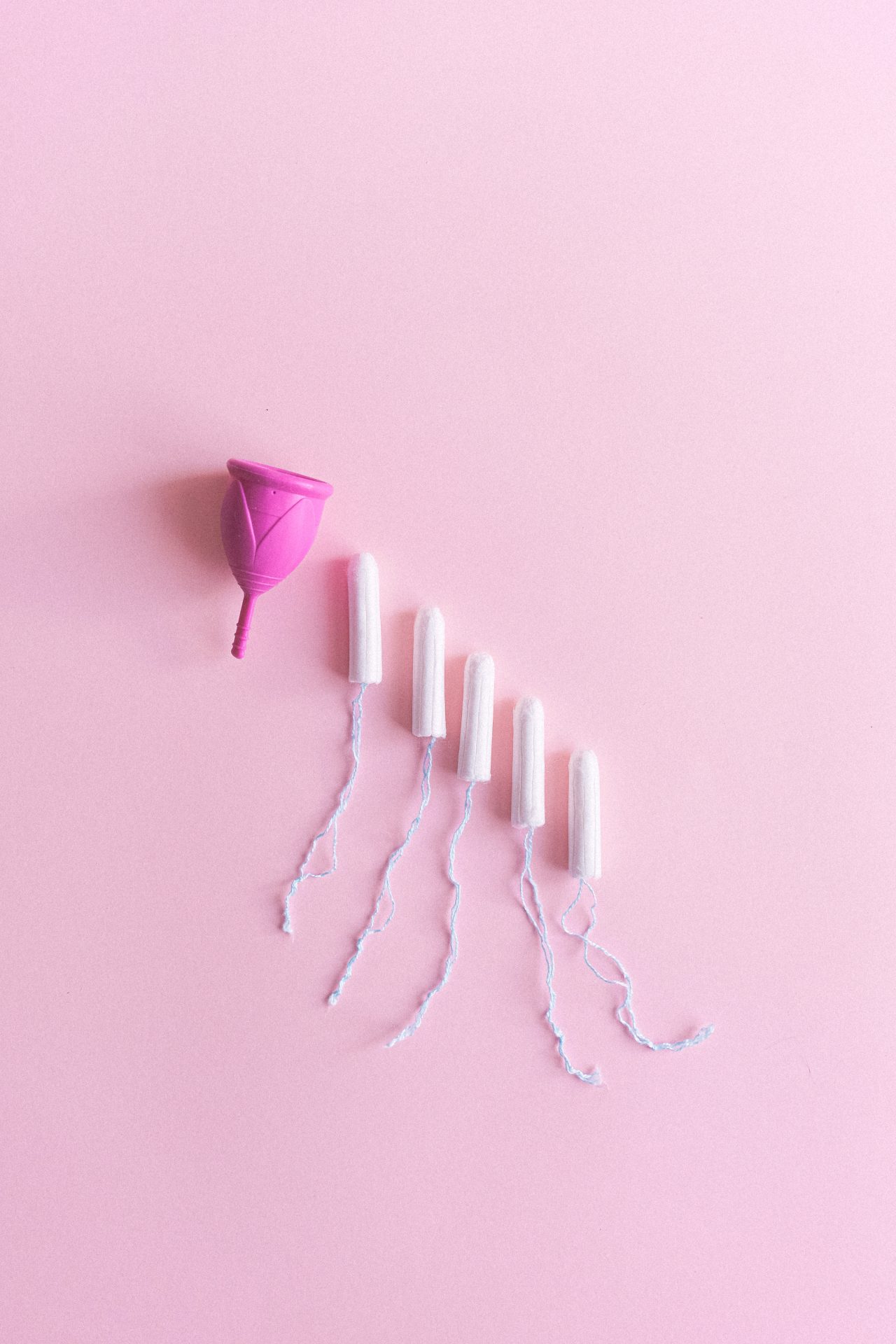Two doctors explain why you might be having heavier period flows than in years before.
You might not remember exactly when your period started, but you’ll probably remember how difficult it was to keep track of your first few bleeds. They came unexpectedly and then disappeared for months, then hit you again at an inconvenient time – like the PE changing rooms or at a party.
Eventually, our cycles become more regular. We can keep track of when it’s going to come and have our moon cups at the ready to avoid being caught off guard. Having a flow you can mark on the calendar isn’t the only change that happens as we get older, though. For example, did you know your period may get heavier as you age?
“For some women, periods do get heavier as they age, and initially this is influenced by whether they are ovulating each month,” says Dr Penelope Law, gynaecologist from menstrual brand Luna Daily. She explains that our first few periods tend to be lighter because our first few periods are anovulatory – meaning the womb lining is shed but no egg has been released.
You may also like
Do some foods aid period cramp? How to eat during your period to stay energised and beat fatigue
After a few years, our hormones tend to have settled, and in our 20s, we should have an understanding of what a normal flow is like to us. “It’s hard to say what’s normal because cycles are variable depending on the individual, but many might expect their normal to be bleeding for five to seven days, requiring three or four tampons or pads a day and not needing to take time off work due to severe pain,” says Dr Law.
However, some people notice that their periods change again around the age of 30, says Dr Helen O’Neill, founder of at-home hormone testing brand Hertility. “A change in your period at this time could be linked to underlying reproductive health conditions such as fibroids, endometriosis or PCOS,” she says.

According to the NHS, fibroids are non-cancerous growths that develop in or around the womb and affect approximately one in three women. They are mostly diagnosed in women aged between 30 and 50, with one of the most common symptoms being heavy periods. They tend to disappear without treatment, but if you’re suffering from symptoms, make sure you talk to your GP.
The biggest changes in our flow happen around perimenopause.
You may also like
Exercise and periods: can a fitness regime reduce period pain and regulate the menstrual cycle?
“Perimenopause, the transition phase before menopause, is when some people report having heavier periods,” explains Dr O’Neill. “As you approach menopause, the drop in the important hormone oestrogen can cause changes such as the shortening or lengthening of the time between periods or a change in the amount of flow.”
Research in 2010 concluded that “there was a strong trend toward an increase in menstrual blood loss with advancing reproductive age”. Researchers found that women who were in the late menopausal stage transition experienced excessive menstrual bleeding (greater than 200ml of blood loss during their period – the average menstrual blood loss is around 33.8ml in people aged 25, which increases to an average of 62.4ml by the age of 50.
Other events that happen over our reproductive years can change our flow too. “Sometimes people notice a change in their flow after switching their method of contraception, such as just starting or coming off the pill or having recently had an IUD fitted,” explains Dr O’Neill. This can go both ways – making periods heavier or lighter, so it’s important you find contraception that works for you.
And pregnancy has an effect on our bleeds too – and not just the nine months we go without them. “Periods are influenced by the cyclical combination of oestrogen and progesterone. Pregnancy gives this cyclical pattern a rest, and women who have heavy periods due to endometriosis often find that their periods are better for a while after having a baby,” explains Dr Law. However, the NHS reports that the first few bleeds after pregnancy for healthy women may be heavier, but eventually return to their old flow.
“It’s also normal to have minor changes in your periods from cycle to cycle because they are very easily influenced by things like stress, diet, lifestyle, illness and travel to name a few.
“However, if you notice your cycles have suddenly changed in flow or regularity it could be linked to an underlying reproductive health condition such as polycystic ovary syndrome (PCOS) or premature ovarian insufficiency (POI), so it’s best to check in with a doctor,” says Dr O’Neill.
Images: Pexels
Source: Read Full Article


